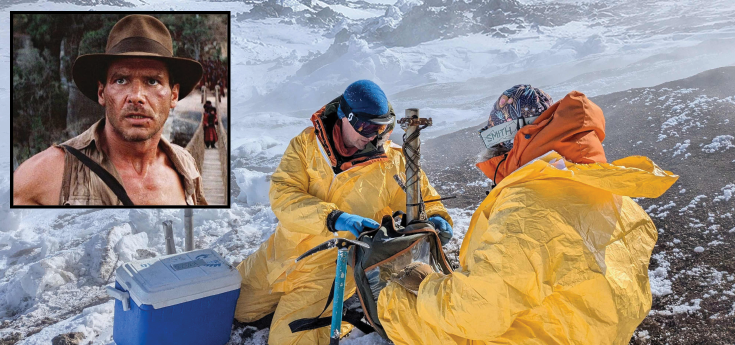
Canterbury University Professor Matthew Stott goes to the ends of the earth in his quest to study life in the planet’s most hostile environments.
“I get to go to amazing places, places few people have ever been, and study organisms that survive where almost nothing else can,” the environmental microbiologist said. “It’s a real privilege to see life thriving under such extreme conditions.”
Stott is fascinated by extremophiles – microbes that live at the extreme ends of survivability.
His latest field site might be the most extreme yet: On the slopes of the world’s southernmost active volcano, Mt Erebus in Antarctica.
The volcano’s chemistry is unique. The outside temperatures are -30 to -40 deg C, and the soil temperatures are 60 to 70 deg C.
“Frankly, it's quite nuts to go there with cold weather gear on trying to sample hot microorganisms. It doesn't quite make sense in your brain,” he told RNZ.
The expedition investigated microorganisms that flourish in sub-zero ice and volcanic heat, offering clues to how life adapts to extreme changes.
One of the issues microbiologists face is how to grow extremophiles in a lab to study them, Stott said. To combat this, the team are creating microbe ‘halfway houses’ on Mt Erebus before bringing them back to New Zealand to study.

“Phospholipids were first discovered in the 1880s,” he said.
“To find a new one more than a century later, and in an organism from our own geothermal systems, was incredibly exciting.”
Stott is currently working with Rotorua’s Tauhara North No. 2 Trust to develop a bioreactor that uses native microorganisms to convert greenhouse gases from geothermal power stations into useful products.
“Our partnership combines science and mātauranga Māori to create solutions that benefit people, the planet, and future generations,” he said.
Stott was awarded the 2025 research medal, Canterbury University’s highest academic honour for research excellence.
-Allied Media













